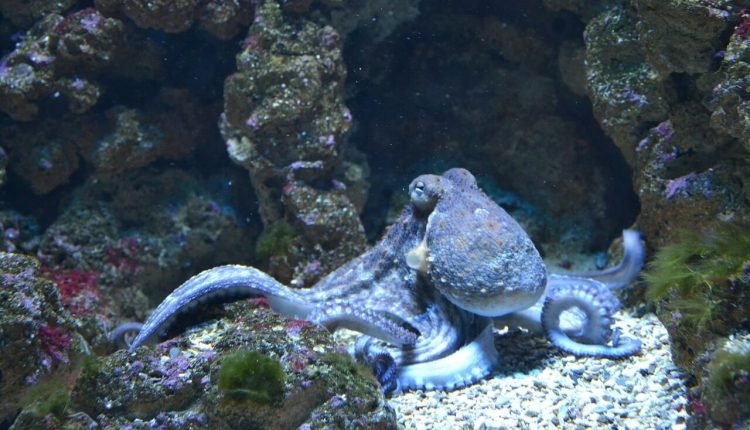Oklahoma Octopus and the myth behind this name
Octopuses are one of my favorite animals. They are so strange, so unlike us, that they are one of the few known lifeforms that can legitimately claim the label “alien.” Add a healthy dose of Lovecraft, a dash of Verne, and maybe you’ve seen enough hentai to know where this is going but our cephalopod pals have inspired some of the creepiest crawlies to grace our collective nightmares. One of the most recent and bizarre reports of a monstrous octopus comes from Oklahoma. Because of Oklahoma octopus prominence as a great shipping region, this makes sense. Yes, Oklahoma’s coast is among the best in the country. The quays! The beachfront! The sea! There isn’t a night that goes by that I don’t dream of an Oklahoma beach vacation.
A Monster From The Freshwater?
The Oklahoma Octopus is a mysterious creature that lives in three Oklahoma lakes (Lake Thunderbird, Lake Oologah, and Lake Tenkiller) and attacks and kills unsuspecting swimmers. According to legend and rumor, this freshwater demon is the size of a horse and resembles an octopus, with long tentacles and leathery, reddish-brown skin.
Skeptics wonder how an octopus, an ocean creature, could survive in freshwater lakes, but it’s easy to imagine such a creature as a fearsome predator. The Giant Pacific Octopus, for example, has tentacles with the strength of a 200-pound man and a powerful beak with which it hunts prey.
Is There Evidence Of An Octopus?
Although there is no physical evidence in the case of the Oklahoma Octopus, many people believe that the high mortality rate and a large number of unexplained drownings in Oklahoma lakes are a clear indication of its presence. There have also been numerous sightings reported.
According to cryptozoologists, jellyfish species have been able to adapt from saltwater to freshwater conditions. A giant cephalopod trapped in an inland lake when coastal waters receded may have been able to do the same.
Habitat
The Oklahoma octopus lives in Oklahoma’s Lake Thunderbird, Lake Oologah, and Lake Tenkiller. These lakes are all artificial bodies of freshwater.Because the lakes are artificial, the drownings are most likely due to people becoming inebriated and failing to pay attention while swimming.In addition, victims who have drowned have no sucker lacerations on their bodies.
Other notable aspects of the story include the fact that the lake is named after another legendary creature of cryptozoological proportions, the Thunderbird, a staple of Native American lore and history. Furthermore, the Native Americans who lived in the area centuries ago told stories of monstrous, octopus-like water-beasts in the area long before the Oklahoma Octopus was on anyone’s radar. The Illinois River’s specific locations (which runs through eastern Oklahoma’s art district) and the Verdigris River.
Debunking a Myth
The majority of the witness reports revolve around sightings of fairly large tentacles breaking the lake’s surface. A complete creature is rarely encountered, but there are several such cases that, taken together, leave the matter wide open.Of course, this is exactly the type of case I enjoy getting my teeth into, and that is exactly what is happening right now. So, shortly, keep an eye out for the full story of what could be Oklahoma’s answer to the Loch Ness Monster.
You may wonder why I bother debunking a myth like this. After all, the Oklahoma Octopus is especially easy prey.As I read articles about this creature, I noticed a pattern: comments from Oklahoma natives who had never heard of the legend. I know comment sections are the pinnacle of trustworthy sources! And no matter how popular an urban legend becomes, there will always be someone unaware of it.
But all of this made me wonder: what is the story’s origin?I couldn’t pin the octopus story down to a specific incident. The online discussions and articles I found were from after the 2008 episode of Lost Tapes aired. Nothing came up when I searched before 2008. The closest thing I could find to a citation was a 1973 incident at a different lake in which two brothers claimed to have seen a monster resembling a lizard, a frog, or even a cow but not an octopus.
Final Words
Perhaps I didn’t look hard enough. Maybe it’s just the nature of urban legends to spread through word of mouth rather than through clear, documented sources. But all of this made me wonder.
Did the Lost Tapes popularise or invent the story? Of course, it stands to reason that after a TV show airs an episode about an urban legend, the discussion will spread. But, just for the sake of argument, what if only a few people were aware of this story? Is that considered an urban legend?

